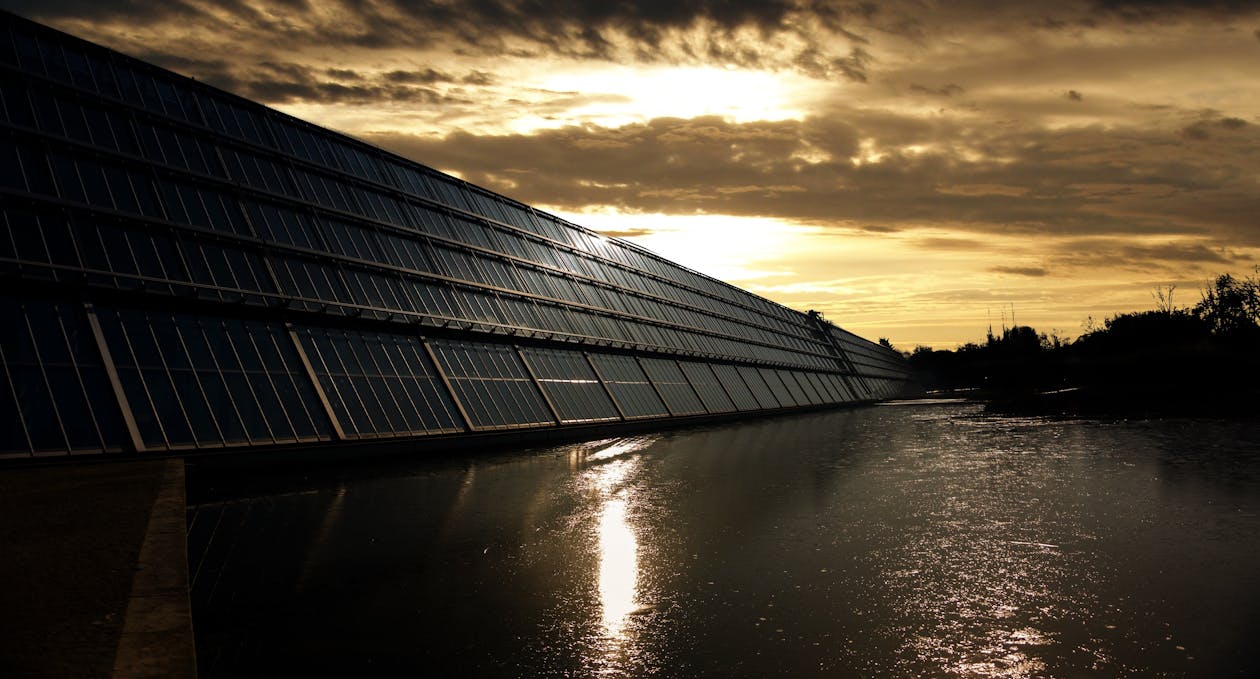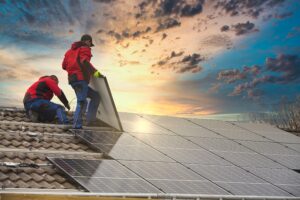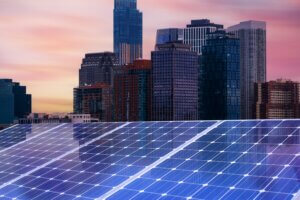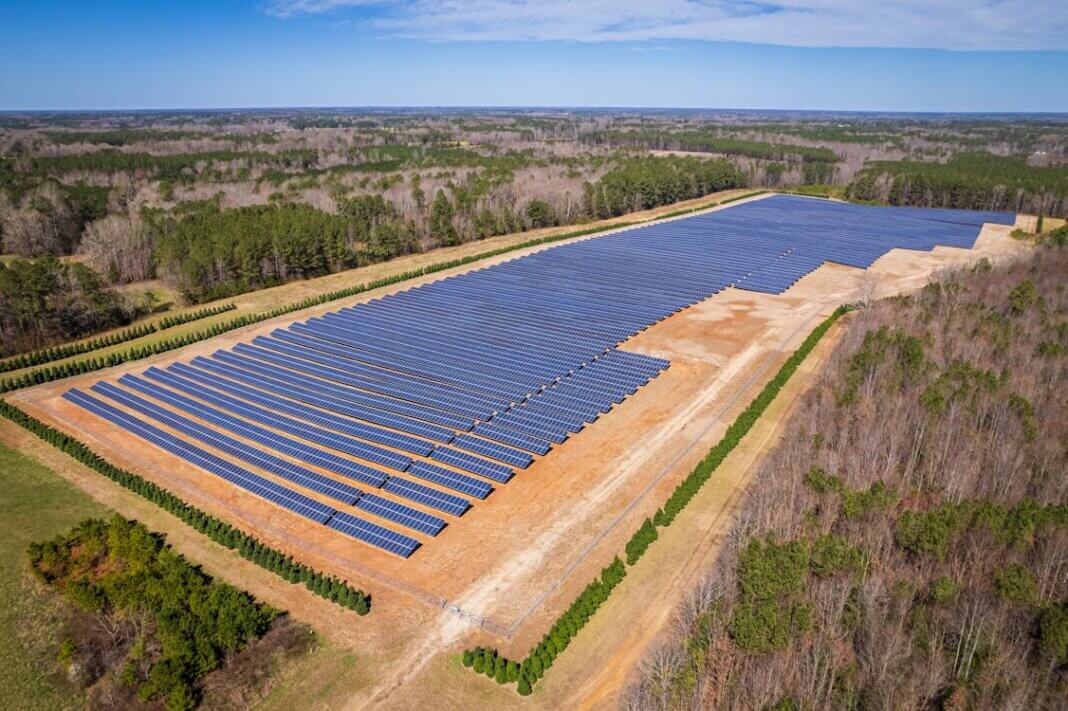Solar Energy Myths: Debunking Common Misconceptions About Solar Power
As solar energy becomes more popular, many people still hold misconceptions about solar power. These myths can make it difficult for homeowners to decide if solar is a good option. This article will debunk some of the most common myths and provide clear, factual information. This will help you understand how solar power works, its benefits, and why it’s a reliable choice for your home.
Solar Energy: A Step Toward Sustainability
Solar power offers a reliable and renewable solution for homeowners seeking cleaner energy options. Commercial solar panels effectively reduce dependence on fossil fuels by using the sun’s energy. This transition not only helps the environment but also ensures long-term energy savings.
Solar systems can adapt to various locations and conditions, making them an accessible choice for many households. These, and many more reasons, make solar power perfect for sustainability.
The Truth Behind Solar Energy: Debunking Common Misconceptions
Many people believe that solar energy only works in certain climates or is too expensive. However, this is far from the truth. These are just misconceptions about solar power. Therefore, clear explanations backed by facts are needed. When doing so, we hope to help you make a more informed decision about whether solar energy is right for you.
Solar Power is Unnecessary for an Eco-Friendly Move
Some believe installing solar power isn’t essential when aiming for an eco-friendly move. This is incorrect. While there are many ways to adopt sustainability, solar power is one of the most impactful steps. Solar panels generate clean energy, significantly reducing reliance on fossil fuels.
This is really important because it allows you to charge electric vehicles cleanly. It also cuts carbon emissions and supports a greener future. Additionally, solar systems provide energy independence, offering long-term savings and protection from rising electricity costs.
Solar Power Only Works in Sunny Weather

As a matter of fact, solar panels generate electricity even on cloudy days. While they work most efficiently in direct sunlight, they still produce power in overcast conditions. Solar panels are designed to capture sunlight, even when the sky is unclear. Modern solar systems have technology that optimizes energy production in low-light environments.
For example, some regions with frequent cloud cover still have high solar energy adoption. Places like the Pacific Northwest in the U.S. see consistent solar power production despite cloudy days. Besides, solar panels do not need perfect weather to provide electricity. They continue to operate, reducing your reliance on traditional energy sources.
Solar Panels Are Too Expensive for the Average Homeowner

The price of solar panels has dropped significantly over the years. Not to mention, tax incentives and financing options make it more affordable than ever. Solar installations now cost much less than they did a decade ago. The price drop is due to advancements in manufacturing and growing demand for renewable energy.
Many homeowners who install solar systems end up saving money in the long run. The money saved on electricity bills often offsets the initial cost of the panels. With this in mind, solar power can actually pay for itself over time. Further, government incentives such as tax credits and rebates make the investment even more affordable.
Solar Energy Systems Require Constant Maintenance
Another myth is that solar energy systems need constant maintenance. This is not true. Solar panels have few moving parts, so there is less break or maintenance. They are built to withstand harsh weather conditions, and with proper installation, they can last for decades.
Besides, the maintenance required is minimal. Solar panels only need occasional cleaning, typically once or twice a year, depending on where you live. Dust, dirt, and debris can accumulate on the surface, but a simple rinse with water is usually enough. Manufacturers also offer warranties on their panels, ensuring you won’t face high repair costs.
Solar Power Is Inefficient Compared to Traditional Energy
In contrast, modern solar panels are much more efficient than most people realize. Today’s solar panels convert about 20% to 22% of the sunlight into electricity. This may not seem like a lot, but it’s an impressive improvement from older models. Furthermore, new technologies like solar storage systems allow homeowners to store excess energy for later use, improving efficiency.
When comparing solar power to traditional energy sources, it’s important to consider long-term benefits. Traditional energy sources like coal and natural gas are finite and polluting. Solar energy, on the other hand, is clean and renewable. Another key point is that solar energy can still power homes even when grid power goes out, thanks to backup systems.
Solar Panels Are Bad for the Environment
Some people believe that solar panels harm the environment due to their manufacturing process. While it’s true that manufacturing solar panels requires energy, the environmental impact is far less than traditional energy sources. Solar panels are made from recyclable materials, and many manufacturers are working to make the process more sustainable.
Similarly, the overall environmental impact of solar power is far lower than that of fossil fuels. Solar energy reduces greenhouse gas emissions and helps fight climate change. Over the panels’ lifetime, the carbon emissions associated with their production are quickly outweighed by the clean energy they generate. This makes solar energy one of the most eco-friendly energy options available.
Solar Power Doesn’t Work in My Area

Many people think solar power is only effective in sunny, warm climates. However, in short, solar panels work in nearly all regions. Even places with cold winters or cloudy weather can benefit from solar power. Areas with long summers and occasional cloud cover still see high solar output.
Nevertheless, every location has different conditions that can affect solar energy production. Some regions may need additional solar panels or better storage solutions. However, solar technology can be adjusted to meet the energy needs of nearly any area. Countries with colder climates, such as Germany and Canada, have some of the world’s highest solar energy adoption rates. Besides, solar systems can be optimized for your location to ensure they work as efficiently as possible.
Summary: Rethinking Misconceptions About Solar Power
The misconceptions about solar power can prevent homeowners from switching to renewable energy. Many myths, such as the belief that solar power only works in sunny weather or is too expensive, are simply false. Solar energy is more affordable, efficient, and environmentally friendly than many people realize.
We can help homeowners make informed decisions about adopting solar power by debunking these myths. As the cost of solar continues to fall and technology improves, more and more people will enjoy the benefits of clean, renewable energy. So, if you’re considering solar for your home, take a closer look at the facts, and you’ll likely find it a worthwhile investment.
